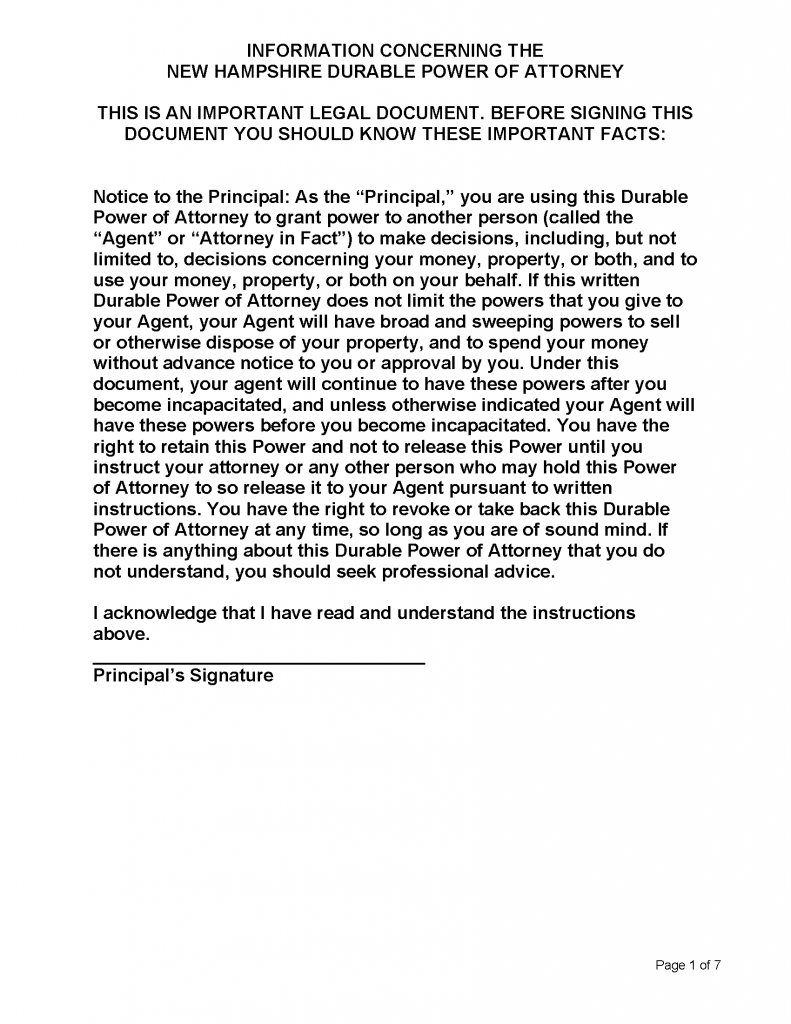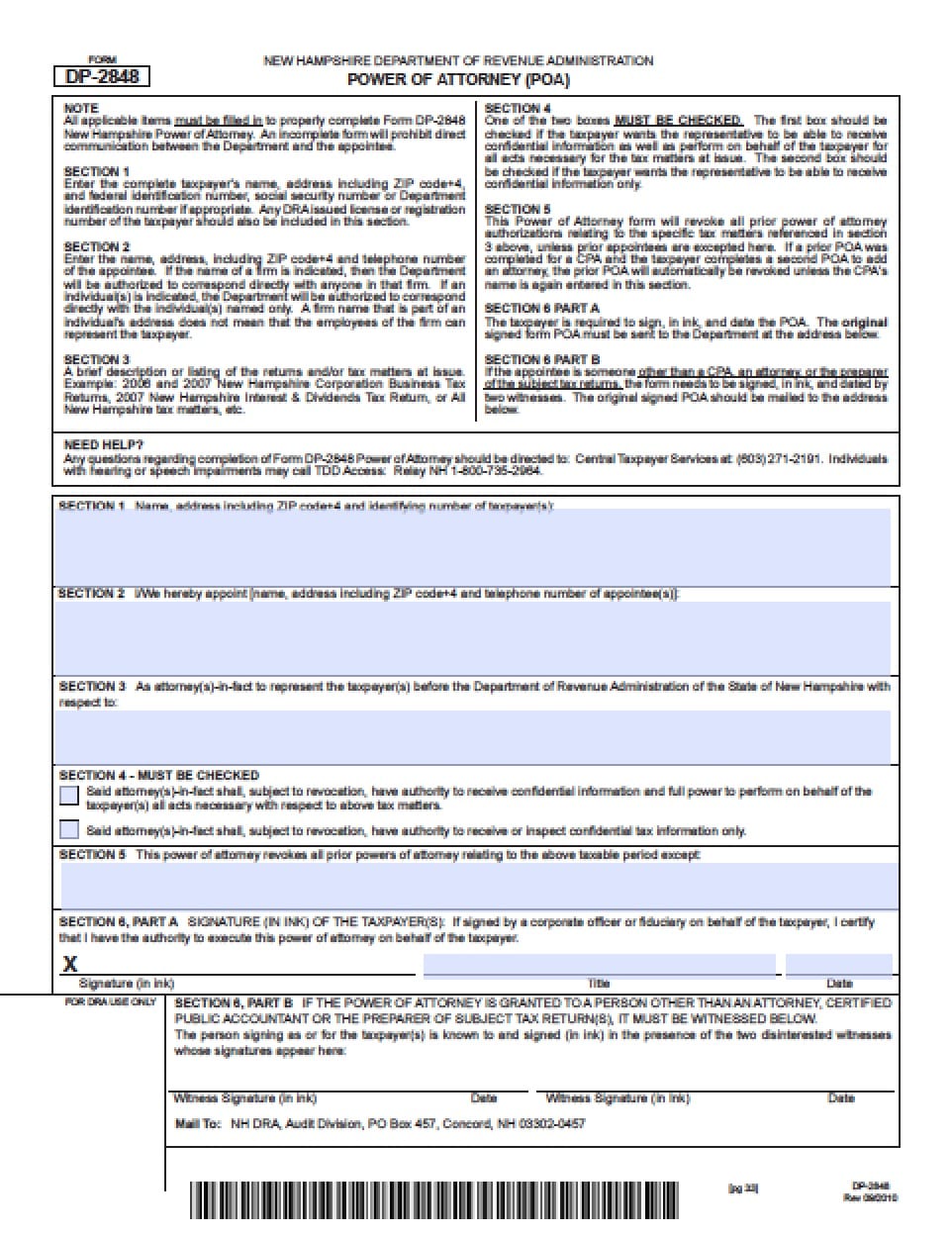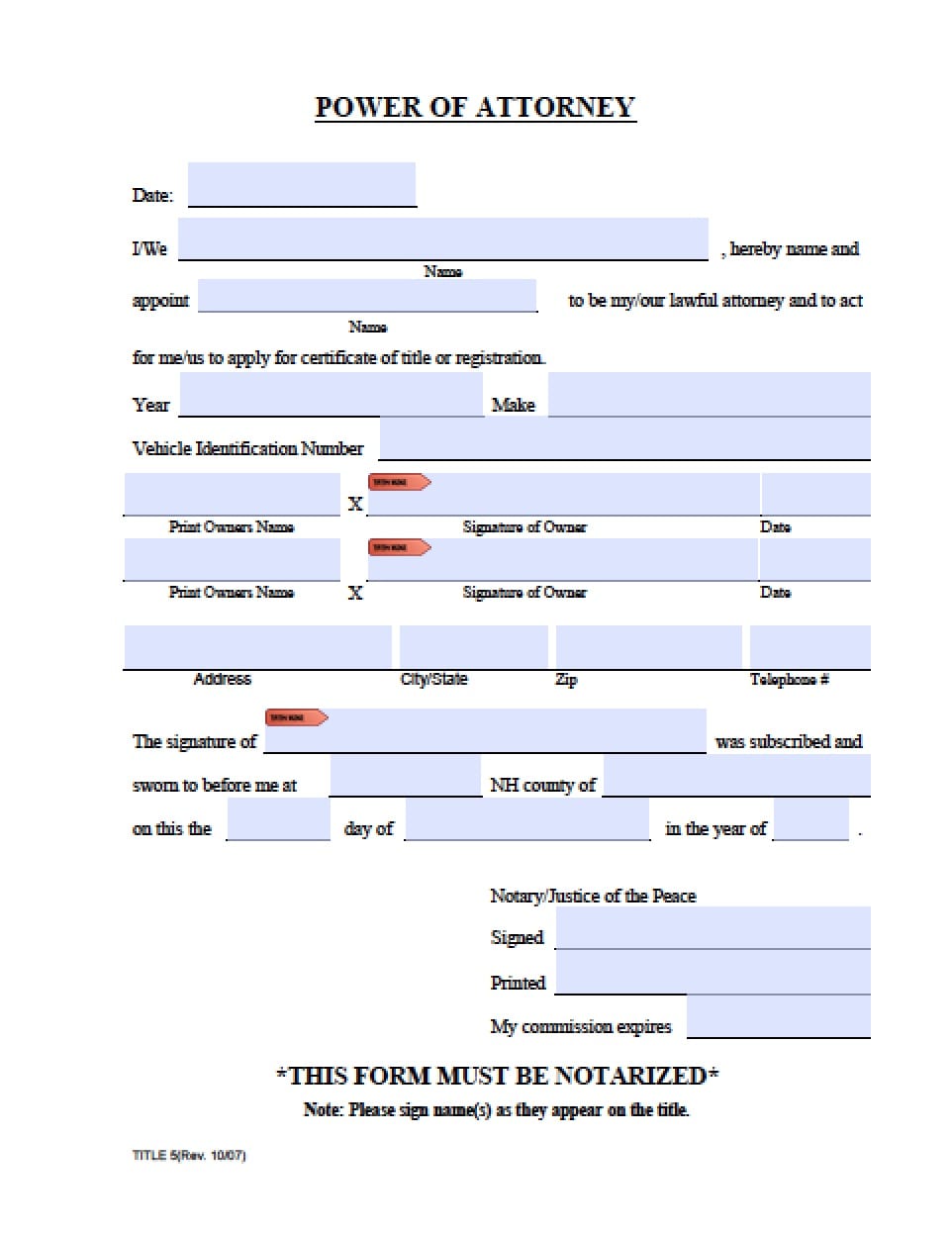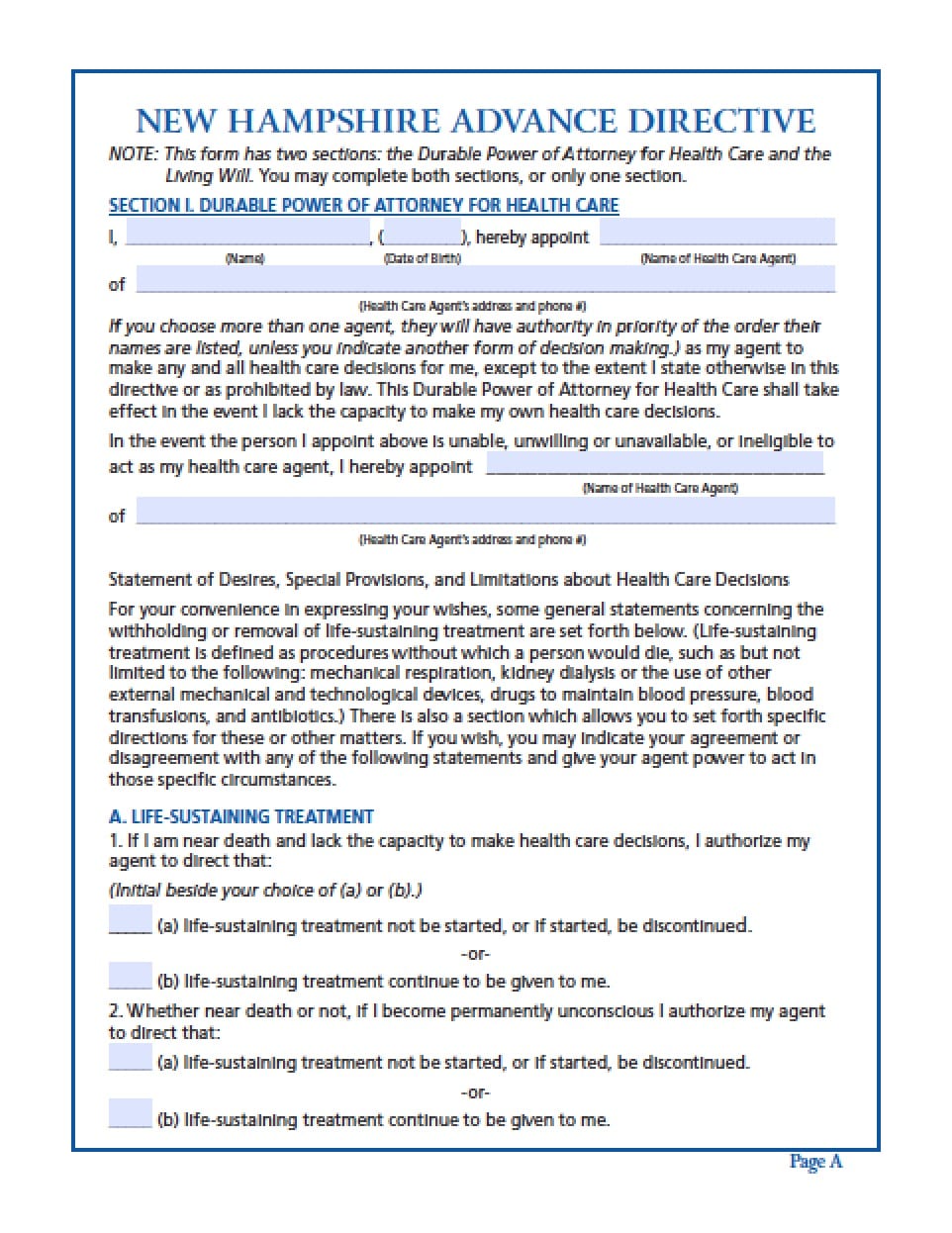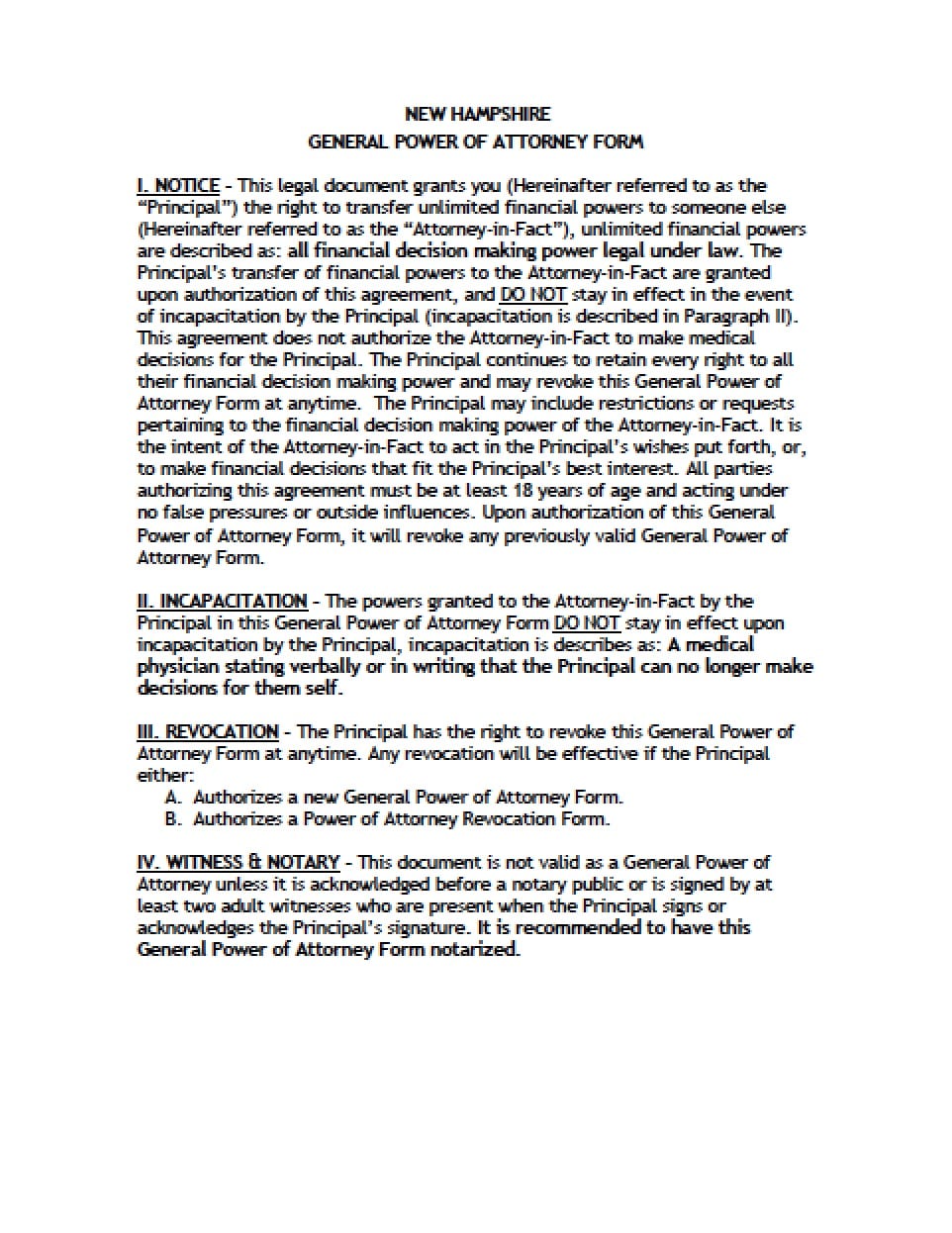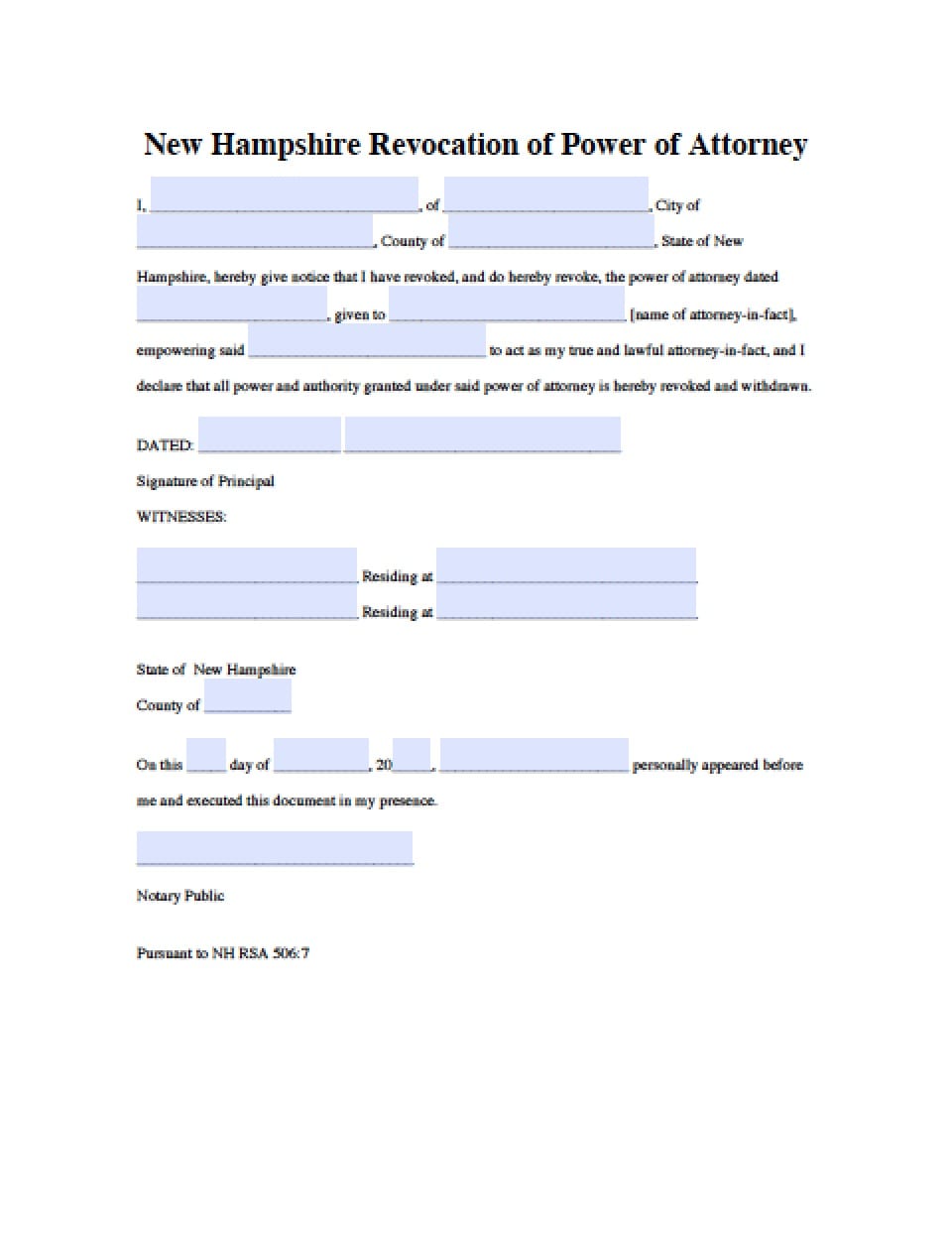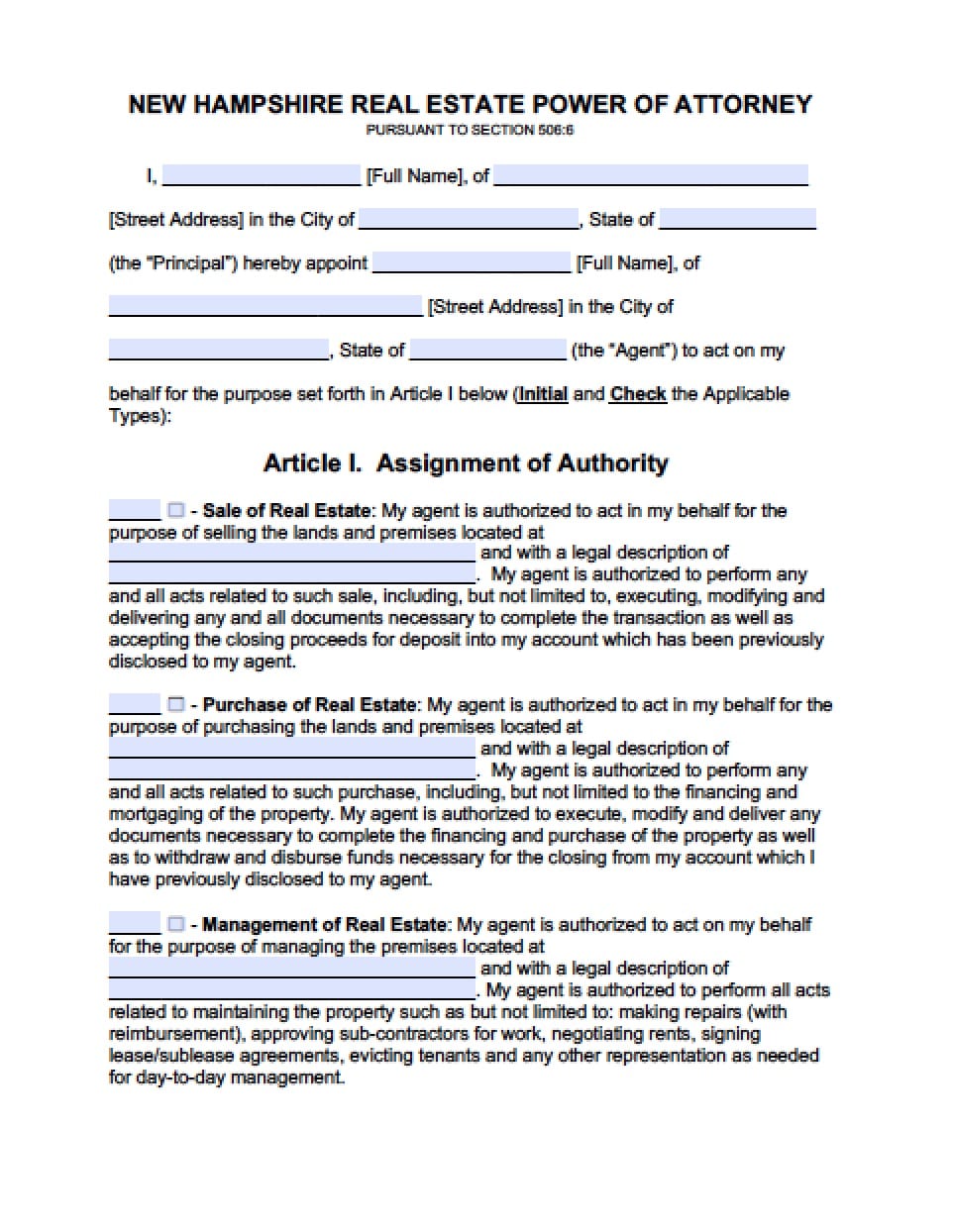 | New Hampshire Durable Financial Power of Attorney Form |
The New Hampshire durable financial power of attorney form is a document that will provide permission from a Principal to an Agent to act on their behalf with business pertaining to their finances and property, in their absence or due to illness. This document carries serious implications if the Principal does not take the time to carefully review the entire document and do their due diligence. It is highly recommended that the Principal limit the powers granted so as not to allow the broad and sweeping powers that will be provided by not limiting what is granted with regard to Agent powers.
If after the Principal has reviewed the contents of the document, they find that they aren’t certain of any portion of the contents, it would then be recommended that the Principal arrange for a consultation with a specializing attorney so that they may be properly educated and prepared when they complete the document.
This document will not allow the Agent to make any health care decisions on behalf of the Principal. The form may be revoked at any time by providing written notice from the Principal to the Agent. This document must be signed before a Notary Public.
How to Write
Step 1 – Notice to the Principal –
- The Principal must download the document and read the entire notice carefully,
- Once the Principal has reviewed the initial section, the Principal must acknowledge their understanding of this section by submitting their signature
Step 2 – The Parties and Powers Selections – Submit the following information:
- The Principal’s Name
- The City of residence
- AND
- Enter the name and address of the elected Agent in the space provided
The Principal must read and initial any of the listed powers as follows:
- The agent may exercise or perform any act, power, duty, right, or obligation whatsoever, currently controlled by the Principal
- The agent may conduct, engage in, and transact any and all lawful business of whatever nature or kind on behalf of the Principal
- The agent may request, ask, demand, sue for, recover, collect, receive, and hold and possess all such sums of money…(review the remainder of this section carefully prior to initialing)
- The agent may lease, purchase, exchange, and acquire…
- The agent may maintain, repair, improve, manage, insure, rent, lease, sell, convey, subject to deeds of trust, and hypothecate, and in any way or manner deal with all or any part of any real or personal property…
- The agent may make, receive, sign, endorse, execute, acknowledge, and deliver such applications, contracts, agreements, options, covenants, conveyances, deeds…
- The agent may represent me in any and all proceedings now pending or hereafter arising between me and the Internal Revenue Service or any other federal, state or foreign governmental authorities…
- The Principal shall grant the agent full power and authority to do, take, and perform all and every act and thing whatsoever requisite, proper, or necessary to be done…
- The Principal must initial and fill in any and all special instructions and directives with regard to their property and financials
- Read the remainder of this section. If in agreement, begin by dating the signatures (following) by naming the City where the document shall be executed and the date in dd/mm/yyyy format
- The Principal must then submit their signature before a Notary Public
Step 3 – Notarization –
- Once the Principal has entered their signature and the Notary has witnessed the signature, the notary shall acknowledge the document by completing the state-required Notary information
Step 4 – Instructions to Agent Pursuant to N.H. Rev. Stat. Ann. § 506:6 –
- The Agent must take the time to read the Instructions according to the State Statute
- Once the Agent has reviewed the entire section and has a clear understanding, they must enter their full name at the top of the section
- At the end of the section, the Agent must enter their signature in acknowledgment that they have read and reviewed the Agent’s Instructions
Notarization –
- When the Agent carefully reviews the Agent’s Instructions and provides a printed name and signature, that has been witnessed by the Notary Public, the Notary will complete the section by providing all of the information required by state law, in acknowledgment
